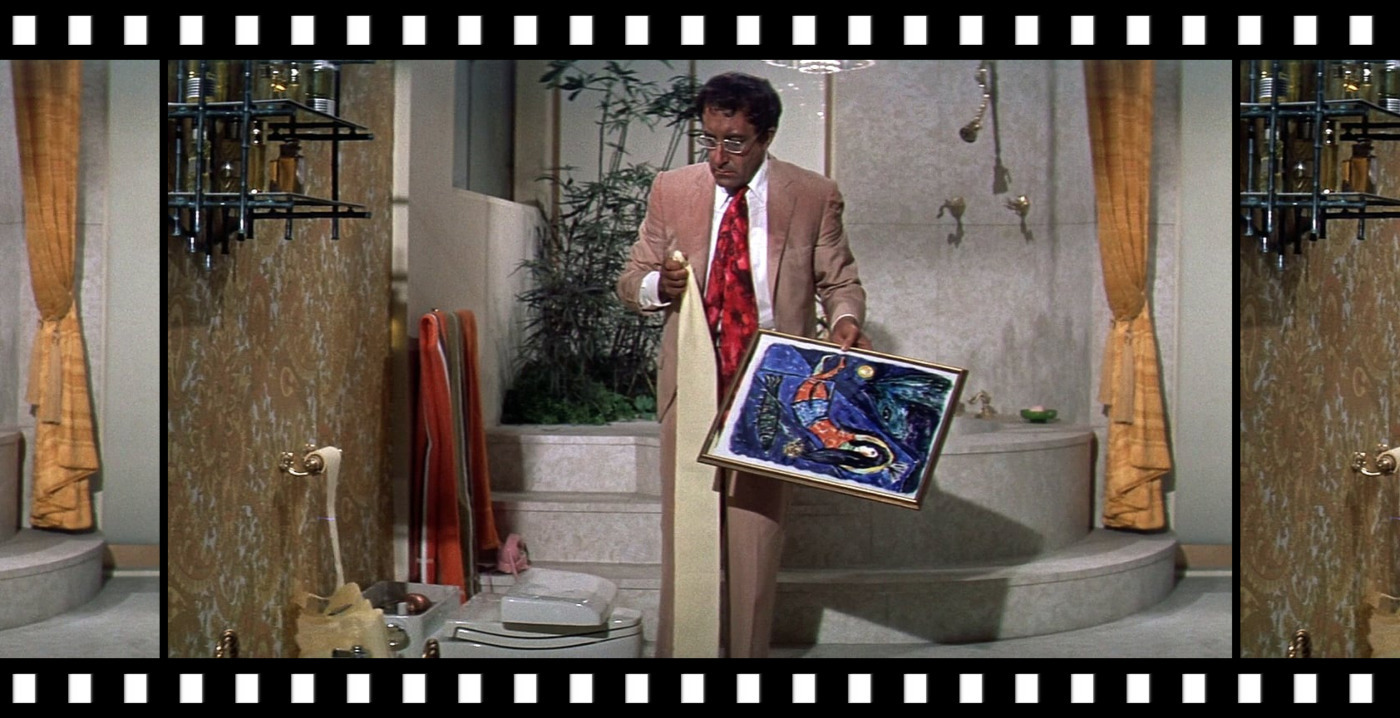
June 20 2018
A common object of everyday life, toilet paper, is also present in the history of cinema.
Aaaand… action!
Aaaand… let it rip!
Let the cameras roll!
Aaaand… Let the cameras roll!
Adventure, horror, splatter, comedies, action, road movies… except for westerns, toilet paper has a role in the history of cinema, and often, a first-rate one.
But… is toilet paper a tragic or comic actor?
Going through some box office hits, we find scenes like the stealing of toilet paper rolls in Legally Blonde by Robert Luketic with Reese Witherspoon (2001), or the one where Italian comedian Renato Pozzetto (Uno contro l’altro, praticamente amici by Bruno Corbucci, 1981) delivers a suitcase containing 100 million lira that, once opened, turns out to be full of… toilet paper, that underscore how, in movies, the toilet roll is naturally inclined to be the “straight man” in comedy scripts.
This thesis would seem confirmed if we think about Sausage Party (2016), zany animation film by Greg Tiernan and Conrad Vernon where an exhilarating roll of toilet paper bemourns its “existential” condition. And are we sure that the interminable laughter unleashed by that masterpiece by Blake Edwards and Peter Sellers called The Party (1968) would be as epic without the face of the British actor as he watches the roll of toilet paper unravel in the bathroom of the Hollywood mega-villa?
But despite the fact that the use of bathroom tissue is tied to the most trivial comedy, its philosophical role is not to be underestimated. In recent times, (2014), the unraveling of a roll of toilet paper bearing strange symbols illustrates the evolution of Planet Earth. The film is Birdman (or The Unexpected Virtue of Ignorance) by Alejandro González Iñárritu; dramatic acting experience in 1999 when a restless Hilary Swank disguises her sexual identity using a toilet paper “support” in the film Boys don’t cry by Kimberly Pierce.
A touching role for toilet paper in the recent documentary (2017) The Maestro, In Search of the Last Music by Alexandre Valenti, that brings to light the stories of musicians who composed scores in lagers and in gulags, writing them even on toilet paper taken from the bathrooms. The Maestro is a journey into the works of Francesco Lotoro, orchestra director who in over 20 years of travel and research, succeeded in recovering thousands of lost melodies.
And not to mention the zombies made of toilet paper, the throwing of rolls and the mistakes in filming like in the movie by Cheryl Hines Serious Moonlight (2009) where in the same scene the toilet paper roll (in the presence of the protagonist tied to the toilet seat and unable to move his hands) first appears whole and then “used” and then whole again.
But perhaps the most interesting role is a supporting one, a part where toilet paper becomes indicator of the substance of the characters. Enhancing the hermeneutic charge of the toilet roll is not the cinema but actually TV. In the fourth episode of the first season of Sex and the city (1998), Carrie (Sarah Jessica Parker), after spending a night of love with a twenty-year-old and waking up in the morning to find that there is no toilet paper in the bathroom, says: “I had out-grown the boys of my past, and not quite grown into the men of my future”.